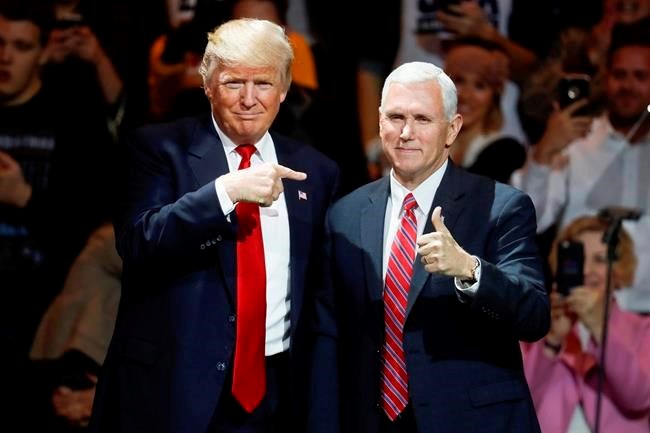NEW YORK — After interviewing Dan Quayle in Arizona for his documentary on the vice presidency, filmmaker Jeffrey Roth was rushing to the airport to catch a flight to Wyoming, where he had an appointment with Dick Cheney the next morning.
He had little time to spare. Suddenly, traffic halted for a motorcade to pass. It was
Roth appreciates the irony. At least, he can now. He made his flight, “President in Waiting” is finished and set to debut on CNN Saturday at 9 p.m. Eastern.
He interviewed all six living
“Ben Franklin, when the Constitution was written, said, ‘we should refer to the
Roth's doc includes several similar quotes, including the classic by John Nance Garner, Franklin Roosevelt's first
So why would Roth want to devote three years of his life to making it?
“For whatever reason, I was always fascinated by the office of the vice presidency and I thought there was an intriguing story behind it,” he said.
Achieving access was his most important task. Two or three veeps wouldn't do. He needed them all, and each wanted to know the others were participating. Walter Mondale was his first interview; Al Gore and Pence took a year and a half to set up, he said.
Ultimately, his only scheduling failure was Donald Trump.
Roth also didn't want to make the type of film that would unspool in a high school social studies class, putting all the students to sleep.
“It's a tough bunch of people to squeeze comedy out of,” said Courtney Sexton, senior
But it has moments, like when Obama and Biden both struggle to edit the language of some of their conversations for public consumption. Both Cheney and his boss, George W. Bush, tell a funny story about their dogs clashing at Camp David.
Cheney is a revelation in the film, considering he knows he was considered the Darth Vader of the Bush administration. He's engaging and entertaining, with a keen awareness of his own role and the job's spot in history.
His insider look at what happened on Sept. 11, 2001, as well as Biden's description of the deliberations before the killing of Osama bin Laden, are particularly illuminating.
The film also describes the role of Mondale and his president, Jimmy Carter, in essentially creating the modern vice presidency. It's a turning point many viewers are likely unaware of; Roth said it was news to him.
Mondale, a Minnesota senator, knew how Hubert Humphrey felt about his treatment at the hands of President Lyndon Johnson, and “President in Waiting” contains audio of Johnson essentially treating Humphrey as a lapdog. He told Carter he'd only become his running mate if given a meaningful role in the administration and an office in the White House. He composed a memo outlining his ideas that's still referenced today.
Vice presidents lost their invisibility. Biden talks about being in the room when key decisions are made, and being copied in on internal correspondence. It's difficult to imagine a repeat of 1945, when Harry Truman succeeded Roosevelt and didn't know that the United States had developed an atomic bomb.
Still, the limitations are visible when you listen to Bush. His
“I don't know what the definition of a powerful
That's also stated explicitly by Pence, whose role in the Trump administration gets little examination in the film. Whatever the modern precedent, a president can easily render the
In another month, the first woman, Kamala Harris, will join the
Considering its title, the film spends surprisingly little time talking about the most important part of the job. No American under age 60 has any memory of a
How did that knowledge change each man's life? How did they keep prepared for the possibility?
Roth said none of the politicians had much illuminating to say on the topic.
“There was not much of a story to be told there,” he said.
David Bauder, The Associated Press


